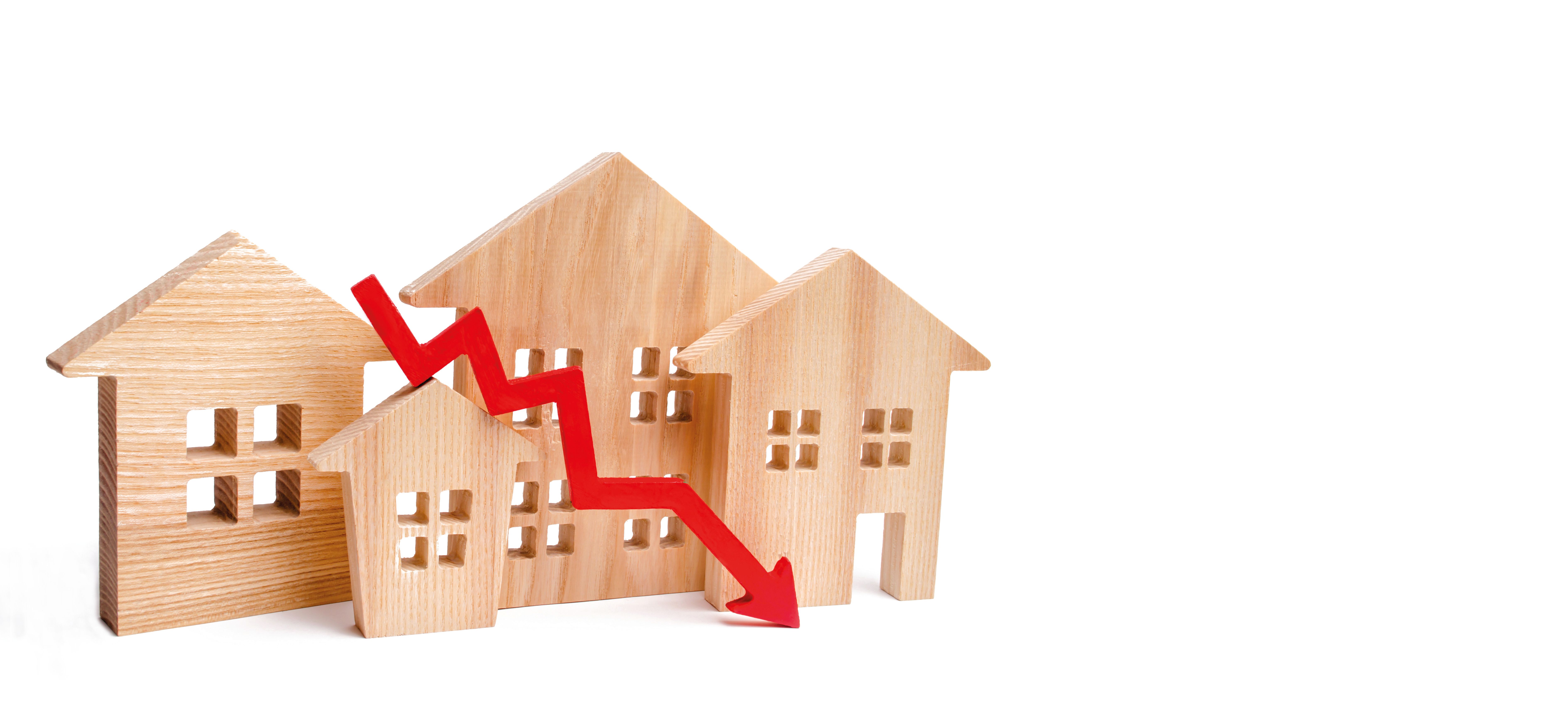
Homebuyer demand fell sharply in August, at a rate not seen since the start of the Covid pandemic, but a continued shortage of available housing stock is helping to support prices for now, according to the Royal Institute of Chartered Surveyors (Rics).
Its latest monthly report shows how the cost of living crisis and higher interest rates are impacting buyer demand, with both buyer enquiries, sales and new instructions all falling in August.
Rics says that this is the fourth consecutive month of negative readings for new buyer enquiries, with figures falling more sharply in August. Its report showed a net balance reading of -26% in July, but this has widened to -39% in August.
In relation to agreed sales, a net balance reading of -22% was posted in August, which also indicates the market is continuing to soften. This measure was just -13% in July. Rics says that sales have now fallen for five consecutive months, with this latest feedback implying this downward trend is becoming further entrenched.
Sales prediction for the three months ahead also slipped further into negative territory, while the predictions for the year ahead have now hit a record low , with the most downbeat forecast since Rics began collating this data in 2012. A figure of -45% was recorded for this indicator last month, down from July’s -35%.
However despite this market pessimism, a lack of housing supply continues to underpin house prices. A net balance of +53% of respondents reported an increase in house prices during August. While this figure is also down on July’s report (of +62%), Rics says it remains comfortably above the long term average of +13%.
In the lettings market, tenant demand continues to rise, with a headline net balance of +50% of contributors seeing an increase in tenant demand over the month. Alongside this, the latest net balance for landlord instructions came in at -13%, with falling supply across the rental market an ongoing theme over much of the past five years. Given this excess of demand over supply, rents are expected to rise in the near term. When viewed over the next twelve months, rents are anticipated to rise by close to 4% at the national level.
Rics senior economist Tarrant Parsons says: “Concerns over the economic backdrop and rising interest rates continue to take their toll on market momentum, with strong activity early in the year now giving way to a more subdued picture.”
MT Finance director Tomer Aboody adds: “The simple economic equation of supply and demand is maintaining steep house prices, with ready buyers still looking to make a move and take advantage before interest rates rise even higher.
“With so much uncertainty over the next 12 to 24 months, the market will start to stabilise but whether there is a crash remains to be seen. There would need to be high sales volumes at lower prices for that to happen, but with inflation rising there will be worried homeowners who bought in the past few years. Let’s hope Liz Truss’ appointment results in some quick assistance to manage the pain.”
Former Rics residential chairman and north London estate agent Jeremy Leaf says: “It’s becoming increasingly clear – and not just at the coalface – that the shortage of stock is continuing to support prices but at the same time disguising the impact of the rising cost of living on the rest of the market.
“Another problem is that demand can disappear if not satisfied fairly quickly so prices may soften further.
“Nevertheless, we’re not seeing widespread renegotiations or buyer withdrawals so don’t expect a significant correction yet although the market is certainly more price sensitive than a few months ago.”



